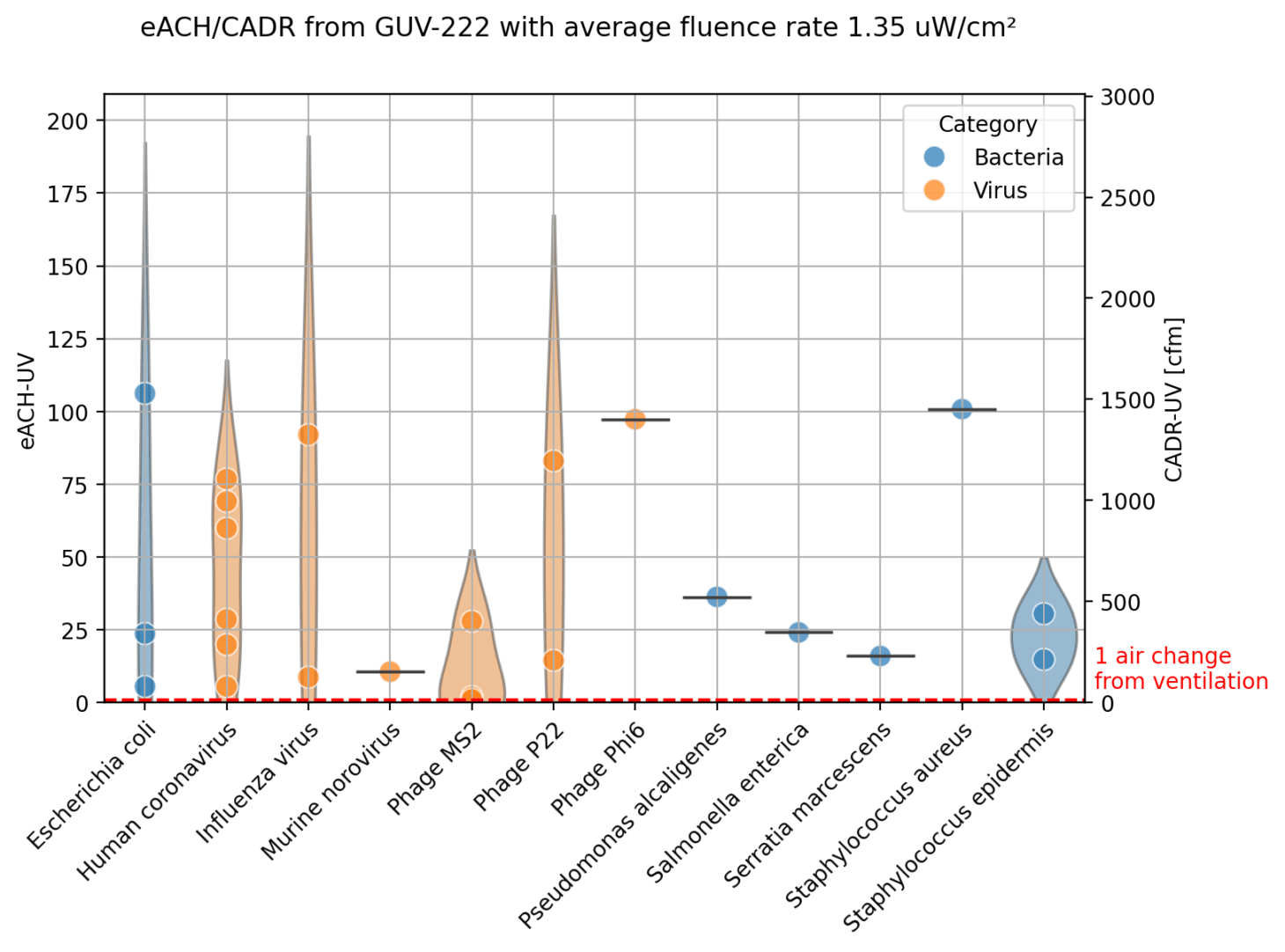My (very non expert) understanding is that this would be a weaker feeling than many you get on a plane, and not rise to the level of conscious perception.
In some previous discussions of far-UVC, on LessWrong the idea was to let the far-UVC light be focused on the space above people's heads so that you clear a lot of viruses in the air while not directly going on people's skin.
Link? That sounds like "upper room" UVC, which is longer wavelengths (ex: 254nm), not far-UVC (222nm).
The output value is low, but not that low? I've run simulations with https://illuminate.osluv.org and it really looks pretty good to me. For example, in an 8ft x 12ft room with a 9ft ceiling, an AeroLamp DevKit in one corner at the ceiling pointed at the opposite corner gives you:

The effective CADR varies by pathogen, but the median of these estimates is 400 CFM which is pretty good (far better than any air purifier that is similarly quiet).
(And it does better in rooms with longer sight lines, so this room doesn't show it at its best.)
Edited this to "even though the software industry has long-since automated this with compilers in typical development."
That's a good point, and possibly I should cut that example. But it seems to me that part of what the community is doing is picking arbitrary constraints that (at least until recently, probably much less so now) strongly favored human coding over automation. Do you know how the demoscene is handling the emergence of AI that is very good at coding?
It's smaller than a minivan in all dimensions, including length, and those are unibody.
Sliding doors are normally combined with folding (or leaving out) a middle seat to give access to the back. With a third set of doors you can much more easily get in and out of the back.
1: That's right. I technically should have said something like "don't sell significantly appreciated stock to donate".
2: That sounds right, but be careful with rules around wash sales.
I'm confused: in dense suburban parts of Scandinavia with street parking, aren't drivers still the ones who have to shovel out their cars?